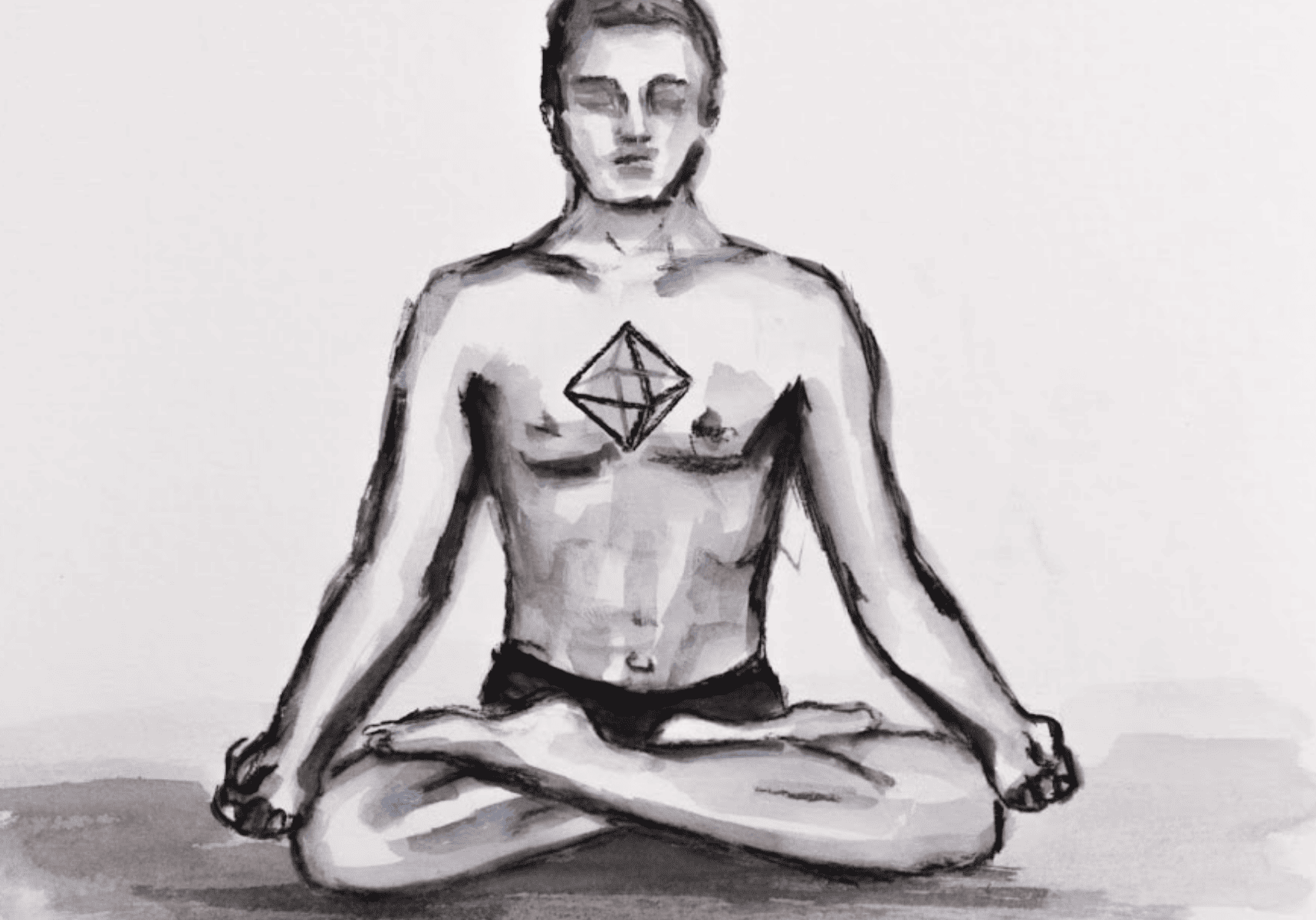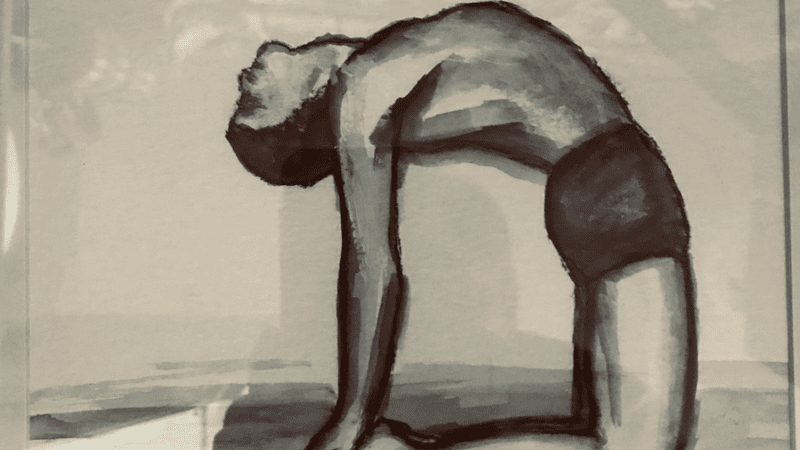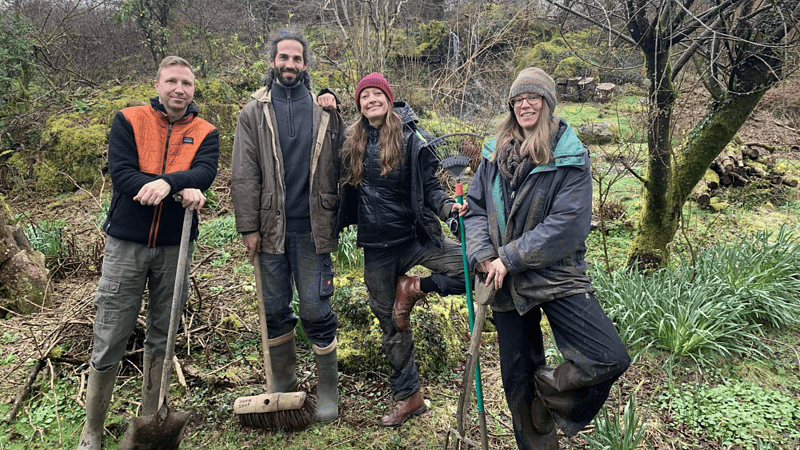
Can Yoga Spirituality and Christian Spirituality Co-exist?
Exploring the Intersection of Yoga and Christian Spirituality - By Gregory Ormson
Reading time: 5 minutes
It is possible that nobody is asking the question above which I use as an entrée to this article. But to be an informed student or teacher of yoga, it is important to recognize it grew from a spiritual environment that included scriptural components, ethics and a cultural imprint, a devotional aspect, and governing religious goal.
Anyone who has been to India, the seedbed of yoga, quickly notices its spirituality is deeply embedded in the cultural fabric, one could accurately call India's spirituality its fascia holding everything together.
In my trips there, I noticed the country's intense spiritual nature and I remembered something I had read from the American Author Flannery O’Connor when she wrote of the American South. “Its not ghost-haunted," she wrote, "but Christ haunted." India is spiritually haunted too, but it's a spiritual haunting I'd identify as complex and inclusive, not bad or scary. Christ is there, and so is Krishna, Allah, and Buddha. It’s what I call a pan-en-theist culture, which I will write of later.
Christian Spirituality and Religion
I’m a former clergy of the Lutheran Church in America. I’ve been keenly aware of spirit, and it’s part of the reason my first trip to India happened when I was 22 years old. I went there as leader of a music and ministry team on a four-month tour sponsored by members of the Lutheran churches in the United States and Canada. For many years afterward, ministry was my career, and I was employed by the church as a clergy and worked in campus ministry.
Campus pastors are well-versed in the Christian faith and its theology, but also in current events and other religions. Campuses are highly diverse settings, populated by intelligent people from all corners of the Earth; therefore, if I as a campus chaplain and voice of social conscience were to engage this population meaningfully and with integrity I needed a thorough understanding of religions and world events, geopolitics, science, art, history, and its biases. Most of all, I needed empathy so I could dialogue with people over their interests, beliefs, and cultural histories.
During two trips to India, I engaged in inter-religious dialogue and studied India’s cultural religiosity and Hindu thought. I have a passing knowledge of Buddhism from study and a trip to Korea, and a good engagement with Indigenous American beliefs and practices along with experiences in the Indigenous sweat ceremony, vision quests, cultural dances and programs, study, and interpersonal communication.
At one time, a cultural shaman in Argentina led my daughter and I to the top of the Andes Mountains in Northwest Argentina where he built a small pyramid and conducted a grounding ceremony. On various trips, I’ve experienced spiritual currents in Haiti and Spain. My knowledge of Judaism is limited; however, I did take one course at the Hebrew Union College in Cincinnati, Ohio.
While working on my Master of Divinity and Doctor of Ministry degrees, my focus centered around theology, psychology, and hermeneutics or interpretation. Not long ago someone asked me, “Do you read the Bible.” I said no, I don't need to because I memorized it.
That’s not literally true, but when I was employed in ministry I had a full knowledge of the Christian Scriptures and I used this as my seedbed to interpret Christian missiology, ethics, history, community, liturgy, pastoral care, education, service, and metaphysics regarding belief and the development and function of creedal belief formulations.
I come to the question in the title of this series not as a newcomer to either yoga or Christianity, but as one who has yearned to understand and communicate the essential core of each belief system and to find common ground. My experience has been that yogis have no problem with Christian beliefs, but that many Christians have a problem with yoga and its underlying belief systems.
Indian Spirituality and Religion
I first began studying Indian religious thought in college during a course in World Religions. My first trip to India further piqued my curiosity, and after that trip I continued my learning. It was decades ago when I first saw yoga performed by a Sadhu (Holy man) in a vacant lot. I didn't know at the time what he was doing and did not know until years later when my yoga practice began while living in Hawaii.
After five years of yoga practice and study, I took the teacher training course and have continued with study, practice, teaching, and *writing, including a dozen articles for print editions of OM Yoga and Lifestyle Magazine, (https://www.ommagazine.com/?s=Gregory+Ormson) and my book Yoga Song.
While I’m no longer involved in a day-to-day Christian community, the roots of that faith system remain deep in my bones. This has allowed me to travel far both metaphysically and physically and yet remain grounded. I don’t have the Bible memorized anymore, but I remember and live a lot of the essential elements of its guiding ethics. My spiritual system today is not even a system, but a layered and nuanced set of interconnected principles and practices that are inclusive and all-encompassing.
But this 5-part series is not about me, it’s for anyone with spiritual questions regarding yoga and its compatibility with Christianity. This could be a large number of people. According to a National Church Life Survey result, sixty-three % of people in the United States claim some form of Christian identity. These percentages decline in England (forty-six %), Canada (fifty-five %), and Australia (forty-three %). I didn't explore beyond these settings of historical Christian culture.
Of course, in 5 articles of 1000 words each, much will be left unsaid, and that's why I will appreciate any feedback you want to give me.
To complete this series, I’ll post once a week during which I will compare yoga and Christian approaches to spirituality and the questions therein with this working outline:
• God and Human: being, incarnation, consciousness, and the starting point
• Traditions: community, ethics, mission
• Spiritual and Philosophical pairings: prayer and meditation, spirituality and physicality, consciousness and metaphysics
• Inspirations: scripture and spiritual devotion, asceticism, breath
• Doctrine (belief) and the liturgics of hands and feet, creeds, salvation
* Yoga Song (Rochak Press, Am Allahabad, India 2022; Lantern Audiobooks, Atlanta, GA. 2023).







